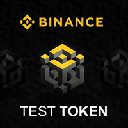-
 Bitcoin
Bitcoin $92,477.6434
-1.11% -
 Ethereum
Ethereum $1,744.7789
-2.50% -
 Tether USDt
Tether USDt $1.0001
-0.01% -
 XRP
XRP $2.1472
-5.15% -
 BNB
BNB $596.6488
-2.31% -
 Solana
Solana $146.8572
-3.16% -
 USDC
USDC $1.0000
0.01% -
 Dogecoin
Dogecoin $0.1732
-4.62% -
 Cardano
Cardano $0.6866
-1.62% -
 TRON
TRON $0.2440
-0.63% -
 Sui
Sui $2.9943
3.75% -
 Chainlink
Chainlink $14.3901
-2.82% -
 Avalanche
Avalanche $21.9130
-3.32% -
 UNUS SED LEO
UNUS SED LEO $9.2481
1.88% -
 Stellar
Stellar $0.2623
-3.64% -
 Toncoin
Toncoin $3.1179
0.54% -
 Shiba Inu
Shiba Inu $0.0...01304
-4.77% -
 Hedera
Hedera $0.1777
-4.20% -
 Bitcoin Cash
Bitcoin Cash $358.9657
0.45% -
 Polkadot
Polkadot $3.9866
-2.91% -
 Litecoin
Litecoin $81.7041
-2.94% -
 Hyperliquid
Hyperliquid $18.0887
-4.08% -
 Dai
Dai $1.0000
0.00% -
 Bitget Token
Bitget Token $4.4473
-2.98% -
 Ethena USDe
Ethena USDe $0.9994
0.01% -
 Pi
Pi $0.6441
-3.30% -
 Monero
Monero $224.1265
-1.26% -
 Uniswap
Uniswap $5.7309
-3.91% -
 Pepe
Pepe $0.0...08439
-7.42% -
 Aptos
Aptos $5.2356
-1.97%
Deepcoin contract sets stop loss point
Traders can minimize potential losses by setting stop-loss points on Deepcoin's contract trading platform, which automatically triggers exit from positions when specific price levels are hit.
Dec 01, 2024 at 10:10 am

Deepcoin Contract Sets Stop Loss Point
Introduction
Stop-loss orders are a critical risk management tool for traders in the cryptocurrency market. They allow traders to automatically exit positions when the price of an asset reaches a predefined level, helping to limit potential losses. Deepcoin, a leading cryptocurrency exchange, offers a flexible contract trading platform that allows users to set stop-loss points for their positions. This article provides a detailed guide on how to set a stop-loss point on Deepcoin's contract trading platform.
Steps to Set Stop Loss Point on Deepcoin
1. Log In and Navigate to the Contract Trading Platform
- Access the Deepcoin website and log in to your account.
- Click on "Contracts" from the top menu to navigate to the contract trading platform.
2. Select the Desired Contract
- From the list of available contract types, choose the one you want to trade, such as BTC/USDT, ETH/USDT, or DOT/USDT.
- Click on the contract to open the trading interface.
3. Determine the Entry and Stop-Loss Points
- Analyze the market and determine the appropriate entry point for your trade.
- Decide on the desired stop-loss point, which is the price level at which you want to exit the position if the market moves against you.
4. Place the Order with Stop-Loss
- Click on the "Limit" order type in the trading interface.
- Enter the desired entry price, quantity, and leverage.
- In the "Stop Price" field, enter the stop-loss point.
- Review the order details and click on "Buy/Long" or "Sell/Short" to place the order.
5. Monitor and Manage the Order
- After placing the order, it will appear in the "Open Orders" section of the trading interface.
- You can monitor the position and make adjustments as necessary.
- If the market price reaches the stop-loss point, the order will be automatically executed, closing your position and limiting your losses.
6. Cancel or Modify the Order
- You can cancel or modify the order at any time before it is executed.
- To cancel the order, click on the "Cancel" button next to the order in the "Open Orders" section.
- To modify the order, click on the "Edit" button and make the necessary changes to the entry price, quantity, or stop-loss point.
7. Review Trading History and Analyze Results
- After completing the trade, you can review your trading history in the "Order History" section of the trading interface.
- Analyze the results to identify areas for improvement and optimize your trading strategy.
Disclaimer:info@kdj.com
The information provided is not trading advice. kdj.com does not assume any responsibility for any investments made based on the information provided in this article. Cryptocurrencies are highly volatile and it is highly recommended that you invest with caution after thorough research!
If you believe that the content used on this website infringes your copyright, please contact us immediately (info@kdj.com) and we will delete it promptly.
- Russia Attacks Bitcoin Mining Operations Again: More Restrictions Coming
- 2025-04-24 17:30:12
- Johor police cripple bitcoin-mining syndicate, causing TNB losses exceeding RM1.28 million
- 2025-04-24 17:30:12
- Solana (SOL) Price Surged by 5% and Hit $150.22
- 2025-04-24 17:25:13
- ING is teaming up with crypto firms to launch a euro-backed stablecoin.
- 2025-04-24 17:25:13
- Bitcoin vs Ethereum in 2025: Two Cryptos, Two Different Jobs
- 2025-04-24 17:20:12
- Pi Network Surprises the Market with a 5% Price Surge as It Launches Migration to Mainnet
- 2025-04-24 17:20:12
Related knowledge
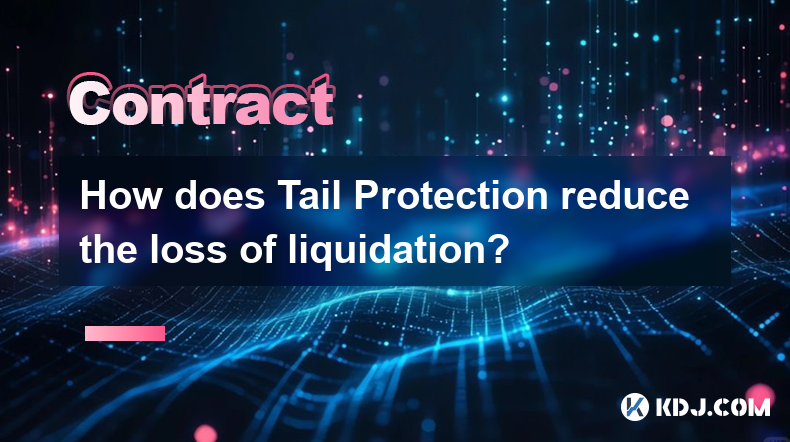
How does Tail Protection reduce the loss of liquidation?
Apr 11,2025 at 01:50am
Introduction to Tail Protection in CryptocurrencyTail Protection is a mechanism designed to mitigate the risks associated with liquidation in cryptocurrency trading. Liquidation occurs when a trader's position is forcibly closed by the exchange due to insufficient margin to cover potential losses. This often happens in leveraged trading, where traders b...
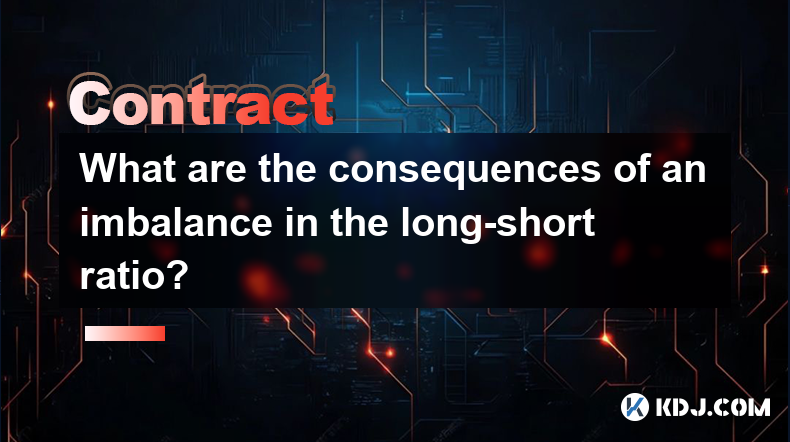
What are the consequences of an imbalance in the long-short ratio?
Apr 13,2025 at 02:50pm
The long-short ratio is a critical metric in the cryptocurrency trading world, reflecting the balance between bullish and bearish sentiments among traders. An imbalance in this ratio can have significant consequences on the market dynamics, affecting everything from price volatility to trading strategies. Understanding these consequences is essential fo...
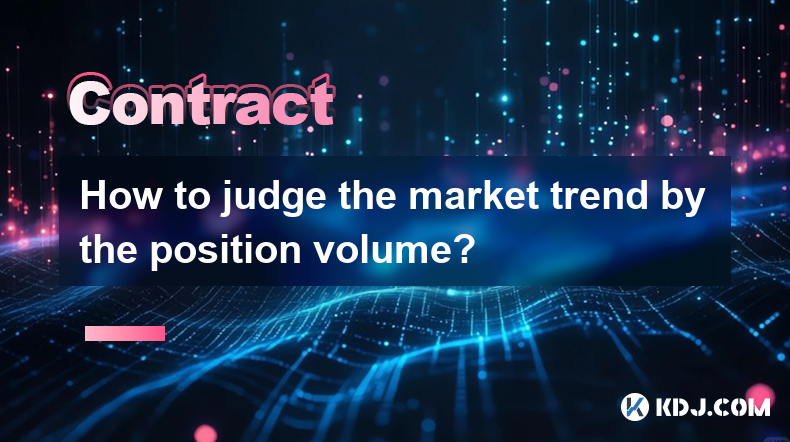
How to judge the market trend by the position volume?
Apr 11,2025 at 02:29pm
Understanding how to judge the market trend by position volume is crucial for any cryptocurrency trader. Position volume, which refers to the total number of open positions in a particular cryptocurrency, can provide valuable insights into market sentiment and potential price movements. By analyzing this data, traders can make more informed decisions ab...

Why does a perpetual contract have no expiration date?
Apr 09,2025 at 08:43pm
Perpetual contracts, also known as perpetual futures or perpetual swaps, are a type of derivative product that has gained significant popularity in the cryptocurrency market. Unlike traditional futures contracts, which have a fixed expiration date, perpetual contracts do not expire. This unique feature raises the question: why does a perpetual contract ...
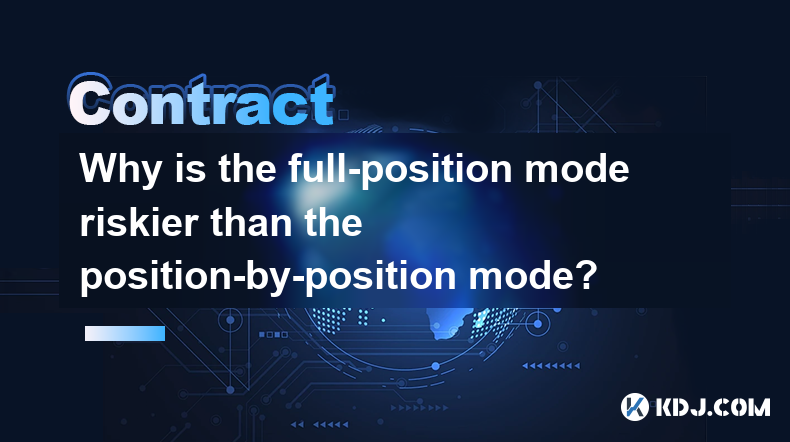
Why is the full-position mode riskier than the position-by-position mode?
Apr 13,2025 at 03:42pm
Why is the Full-Position Mode Riskier Than the Position-by-Position Mode? In the world of cryptocurrency trading, the choice between full-position mode and position-by-position mode can significantly impact the risk profile of a trader's portfolio. Understanding the differences between these two modes is crucial for making informed trading decisions. Th...
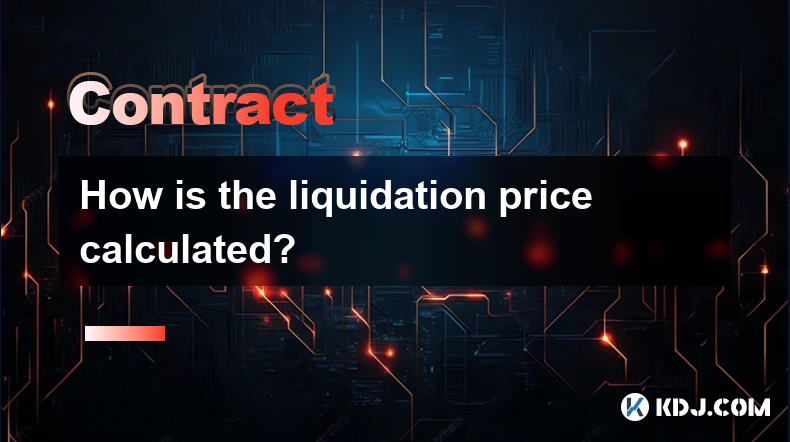
How is the liquidation price calculated?
Apr 12,2025 at 01:35am
Introduction to Liquidation PriceLiquidation price is a critical concept in the world of cryptocurrency trading, particularly when dealing with leveraged positions. Understanding how this price is calculated is essential for traders to manage their risk effectively. The liquidation price is the point at which a trader's position is forcibly closed by th...

How does Tail Protection reduce the loss of liquidation?
Apr 11,2025 at 01:50am
Introduction to Tail Protection in CryptocurrencyTail Protection is a mechanism designed to mitigate the risks associated with liquidation in cryptocurrency trading. Liquidation occurs when a trader's position is forcibly closed by the exchange due to insufficient margin to cover potential losses. This often happens in leveraged trading, where traders b...

What are the consequences of an imbalance in the long-short ratio?
Apr 13,2025 at 02:50pm
The long-short ratio is a critical metric in the cryptocurrency trading world, reflecting the balance between bullish and bearish sentiments among traders. An imbalance in this ratio can have significant consequences on the market dynamics, affecting everything from price volatility to trading strategies. Understanding these consequences is essential fo...

How to judge the market trend by the position volume?
Apr 11,2025 at 02:29pm
Understanding how to judge the market trend by position volume is crucial for any cryptocurrency trader. Position volume, which refers to the total number of open positions in a particular cryptocurrency, can provide valuable insights into market sentiment and potential price movements. By analyzing this data, traders can make more informed decisions ab...

Why does a perpetual contract have no expiration date?
Apr 09,2025 at 08:43pm
Perpetual contracts, also known as perpetual futures or perpetual swaps, are a type of derivative product that has gained significant popularity in the cryptocurrency market. Unlike traditional futures contracts, which have a fixed expiration date, perpetual contracts do not expire. This unique feature raises the question: why does a perpetual contract ...

Why is the full-position mode riskier than the position-by-position mode?
Apr 13,2025 at 03:42pm
Why is the Full-Position Mode Riskier Than the Position-by-Position Mode? In the world of cryptocurrency trading, the choice between full-position mode and position-by-position mode can significantly impact the risk profile of a trader's portfolio. Understanding the differences between these two modes is crucial for making informed trading decisions. Th...

How is the liquidation price calculated?
Apr 12,2025 at 01:35am
Introduction to Liquidation PriceLiquidation price is a critical concept in the world of cryptocurrency trading, particularly when dealing with leveraged positions. Understanding how this price is calculated is essential for traders to manage their risk effectively. The liquidation price is the point at which a trader's position is forcibly closed by th...
See all articles



















































































